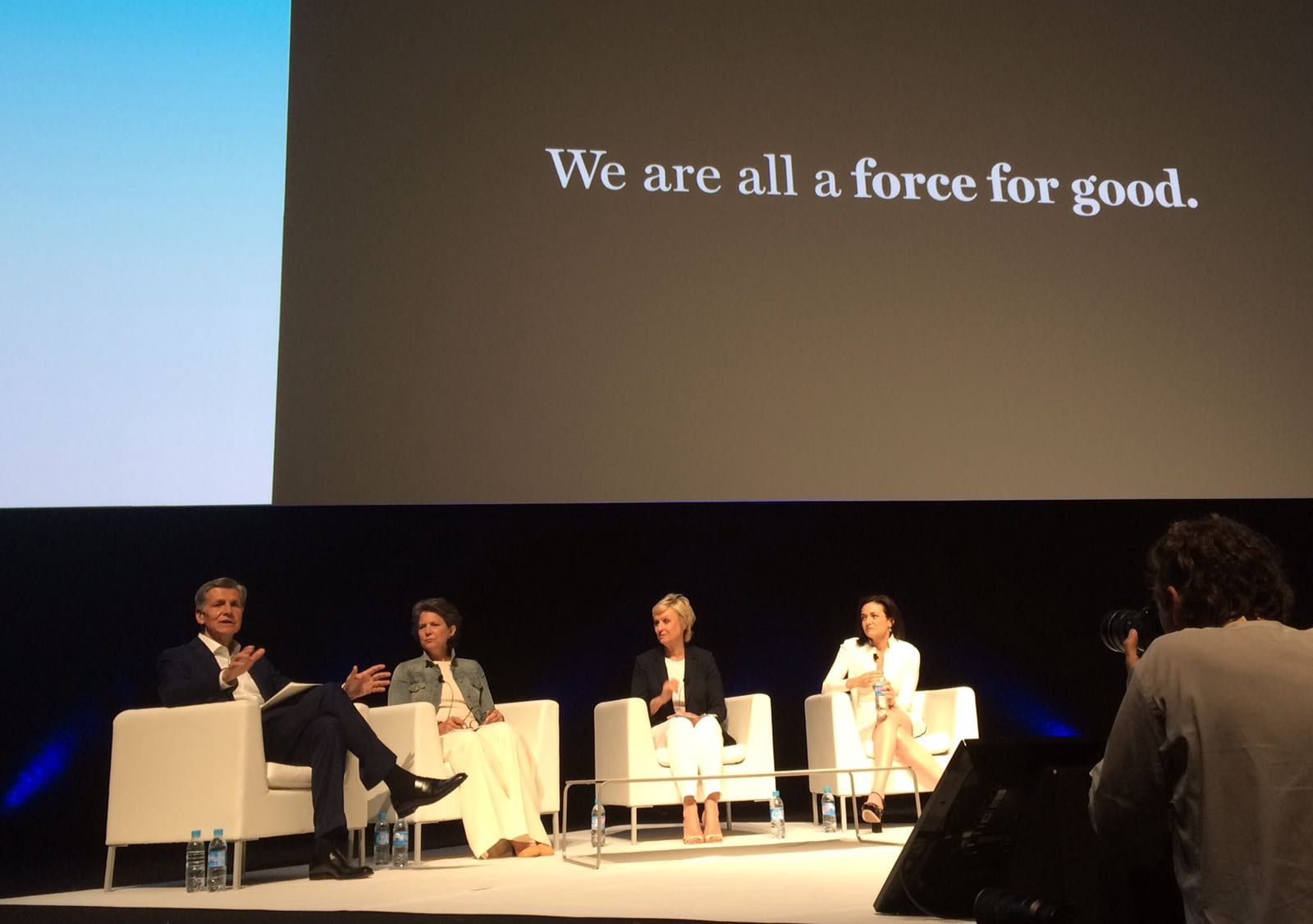Today Madonna Badger returned to the Cannes Lions stage to talk about Creativity and Responsibility. The festival’s biggest sensation from last year was on a panel hosted by P&G Chief Brand Officer Marc Pritchard and was joined by media legend Tina Brown CBE and Facebook COO Sheryl Sandberg. Quite the line-up.
I’m always fairly skeptical of discussing topics like this via panel, since they often don’t reach the ‘practical solutions’ bit of the debate quick enough. But the quality of the panelists was high, and they didn’t disappoint.
Each of the women on the panel spoke about the need to take responsibility from a different angle; Badger on the agency side, Brown on media, Sandberg representing, of course, the distribution.
I could speak of the horrifying examples they showed; #WomenNotObjects’ promo video that highlights the derogatory ways women are represented by brands, the “Legs-it’ front cover from the Mail, the disgraceful clip of Tucker Carlson verbally abusing Lauren Duca (most shocking of all) – but rather than give more promotion to those making such bad decisions, I’d prefer to talk about the actions.
And the fact is, there are very real things we can all do right this moment to try and readdress this.
1. Test your creative’s equality score. In a bid to strengthen its #SeeHer gender-equality push, the Association of National Advertisers is making the ad-scoring system behind it available for any copy-testing service, meaning it could become a standard module in the software engines by which analytically inclined marketers evaluate ads. For me, on this one, the question here is; why WOULDN’T you do this?
2. Use Madonna Badger’s mentality: Props, Parts, Plastic. This is a simple methodology for ensuring that you’re not objectifying women within your ideas. Don’t reduce them to props, don’t use body parts to reduce their input to physical characteristics, and don’t paint women with an unrealistic plasticky gloss. The latter is perhaps the most dangerous, since it creates a sense of never quite being good enough – and the representation of women as plastic dolls is something a real human can never achieve.
3. Try something. Brown referenced how excited she was to see more ‘women as subject, women as director’ projects do so well recently. Big Little Lies was one, Warner Bros.’ Wonder Women is another. Being brave enough to try this out is a huge step towards trying to get better and broader representation of female characters in to the media landscape. And the ROI is there; Wonder Woman has been a huge commercial success, and Big Little Lies has seen mass critical acclaim.
4. Mentorship. Badger flagged this as a key way to not only encourage more women in to the positions that will help them make the decisions about how women are represented, but also in supporting both men & women in how they shape ideas to be more balanced.
5. Form allegiances. Pritchard (like Keith Weed the day before) highlighted the UN’s two projects in this area. The first is the Unstereotype Alliance; designed to which aims to accelerate progress around how women and men are portrayed in ads and brand-led content. The second is the Gender Diversity study, being carried out by McKinsey; which is global research on the gender gap and the case for greater diversity in the workplace. There are many more projects you can get involved with, commit time to, and work with others to speed things up.
And if you’re trying to change, that’s a good thing. Badger referenced the ‘Daughter’ #DriveProgress ad from Audi, which was well received when it aired within the Super Bowl this year – then slated for being the only action taken towards readdressing the balance. But we can’t slate every brand for trying to do something differently and not being immediately able to change. The reality is that things can’t move that fast, sadly. Intent and a move in the right direction is a fine place to start.
